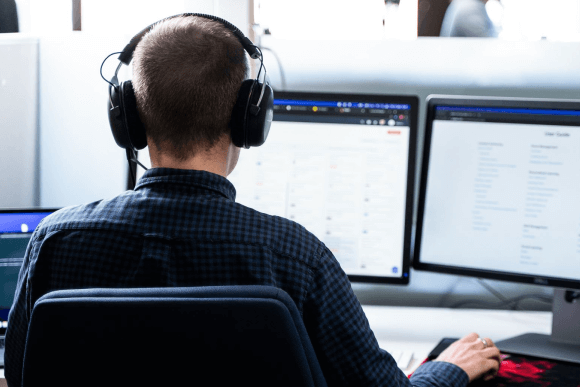Identify your company’s key experts and ensure their commitment
Motivated employees who feel that they are given the chance to influence their work are vital for the success of a company.

Motivated experts who have an opportunity to update their competencies are vital for a company providing professional services. Developing one’s competence should be bound to the company’s strategy, as the business exists to supply competence.
Whether it is a consulting firm, law firm or an IT company, the business model of companies providing professional services is based on supplying competence. Offering professional services requires experts with an optimal level of competence and a company that is able to identify those employees who are best suited for each project. The information on a person’s abilities and special expertise should not be known to only a few individuals but made available to the entire company. The development of competence through a digital learning environment is the answer to these requirements.
As a business that relies on top expertise depends on its experts, the development of competence must be bound to the company’s strategy.
Efficient orientation results in committed employees
Welcoming a new employee to a company that provides professional services requires the transfer of a massive amount of information to the new expert. Before the skill level of the new employee has been examined and ascertained, it is impossible to carry out customer work efficiently. Therefore, the orientation period is an investment for the company.
Special expertise usually relies heavily on memory. The person conducting the orientation may forget something or another person may have the information needed by the expert. When a digital learning environment is in onboarding process, the transfer of information can be verified and the employee is able to begin their learning process quickly. This makes the employee’s initial level of competence clear and specifies the opportunities offered to the employee by the development process in the future. Effective orientation guarantees that the new employer is able to quickly pick up their share of customer work. A more effective orientation process results in a smaller financial investment for the company.
Valamis utilizes electronic orientation. Its purpose is to ensure the expert has access to all the information they need. The expert’s skills and needs are surveyed at the same time. The expert can be offered training on the basis of their future needs, and the information on their competence enables the useful allocation of customer work from the very beginning. It is easier to commit to work when expectations and opportunities are clear.
When the company itself is aware of the competence of its employees from the outset, that competence is also easier to communicate to the company’s clients. Customer satisfaction is improved when the level of competence is verifiably made to match the client’s expectations and needs. The digital learning environment enables the measurement of the connection between customer satisfaction and competence.
Make the most of the competence in your company
The value of identifying the right type of competence is especially evident in major companies providing professional services. If a customer suddenly needs a journalist with prior knowledge of the history of Finnish architecture or a lawyer specialized in EU tax law, the company may face a dilemma. Companies often lack the ability to identify their best experts for the task at hand.
It is difficult to assemble a team of key experts from dozens, hundreds or even thousands of employees if competence has not been surveyed.
When finding the right expert takes minutes instead of days, even the most unexpected customer’s needs can be met efficiently. When a digital learning environment is used for developing competence, it constantly accumulates information on competence levels and needs. Search terms make it easy to find specific experts in the Valamis – Learning Experience Platform. If the necessary competence cannot be found in-house, training can be arranged for interested parties. Thus, needs related to know-how can be responded to before major deficiencies arise.
Breaking loose from the feeling of inadequacy
The feeling of inadequacy is a common experience for experts working in professional services. The occasionally high mental pressure related to the work may feel excessive if support and information is not readily available. A digital learning system makes information and training accessible to the employee at all times.
Employees stay motivated when work-related doubts can be shed with the help of a digital learning environment. An employee can use the platform for studying or finding co-workers who have the necessary information for a specific problem.
A digital learning environment makes the development of competence easy to gamify. When an employee’s skills increase, they can verify their progress with certificates. Personal competence can be expressed in the learning environment through certificates, and coworkers can be congratulated on their achievements.
Certificates can act as a means of transferring from one level of competence to another when defining competence levels in the company. The employee can also invest in the areas of learning in which they are personally most interested.
Motivated employees who feel that they are given the chance to influence their work are vital for the success of a company.
Various interests and the motivation to acquire certificates from different areas of expertise can be taken into account when a digital learning environment is utilized to create expert teams. This allocates the work tasks to those who have not only the correct competence but also the motivation for the task.
Digital tools utilized in the development of the employees‘ competence from their first day can become a decisive factor when looking at the overall success of a company.




